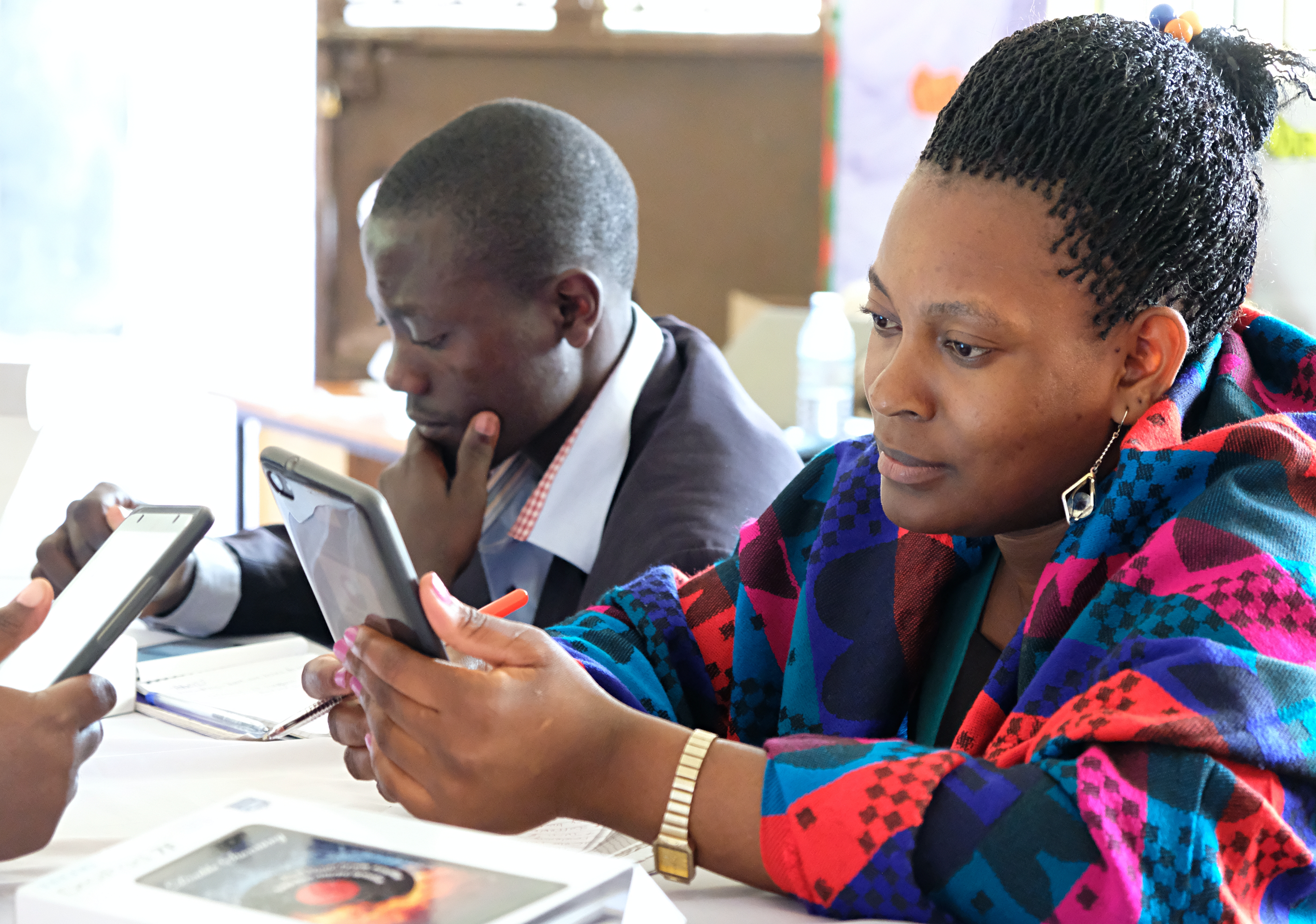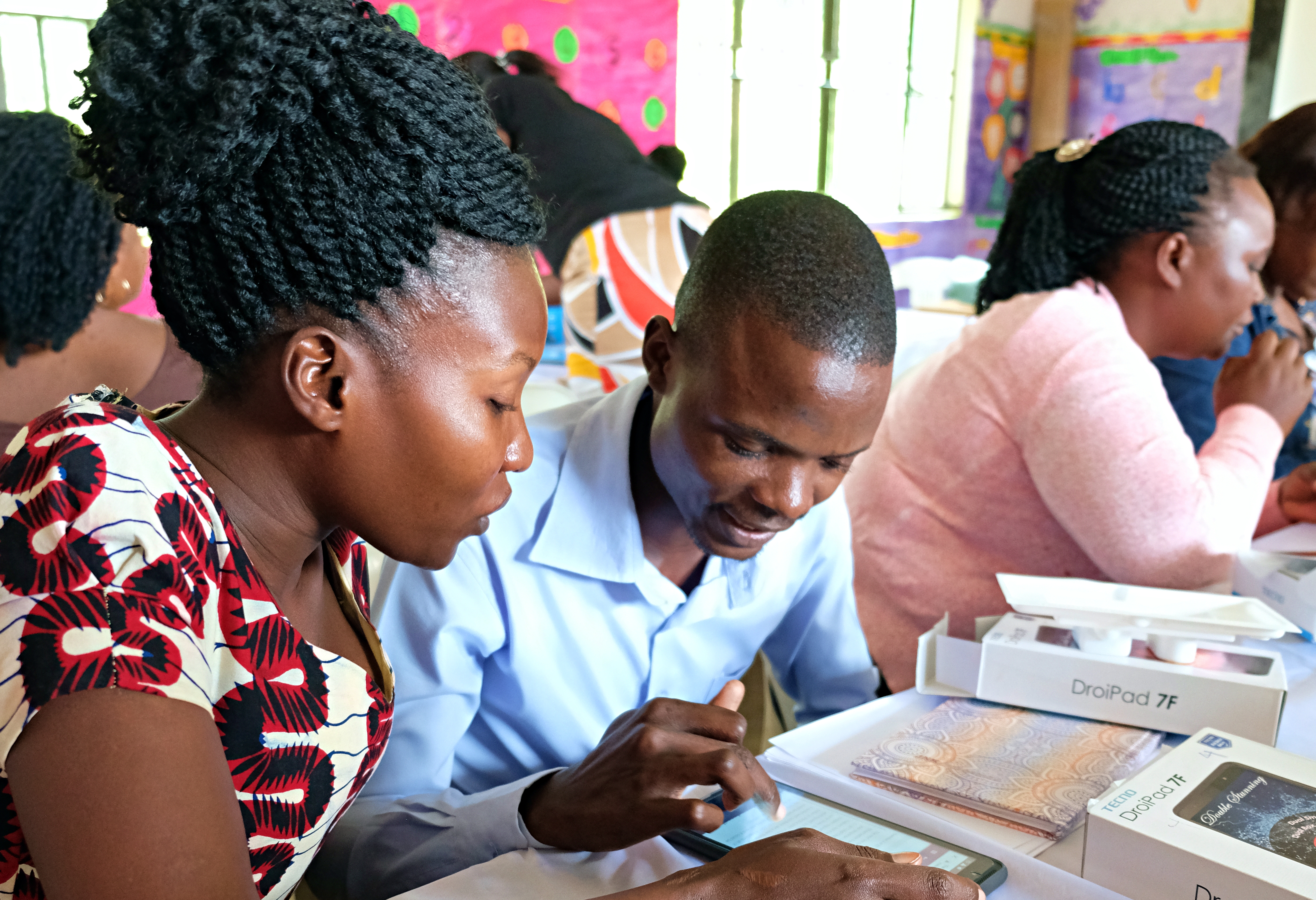PARTNERING FOR SCALE: Opportunity EduFinance & Chalkboard Education launch a ‘Blended Learning Model’ that supports school resiliency
The first two installations of our Learning Journey blog series on education innovations were published in January and March 2020. Almost immediately after this, schools across all the markets Opportunity EduFinance works in – including Uganda where we launched our pilot - were forced into temporary school closures, along with 85% of schools globally due to the pandemic.
This global disruption in education has massive implications that we are all too familiar with, most alarming is learning loss risk for the most vulnerable children. For non-state schools - which represent more than 25% of the education market low- and middle-income countries, and educate millions of children - there are additional major risks due to significant loss of income and the razor-thin margins with which they operate. Many schools may be forced to close their doors to learners permanently, while other schools will need to rebuild their teaching workforce due to attrition from months of unpaid salaries.

While the circumstances are different, the objective of this learning series remains the same. We will continue to examine the evolution, learning, adaptation, and failures around what works and what doesn’t when developing the right digital foundations and pedagogical approach to instructional leadership and teacher professional development.
While unforeseen when we launched our Teacher Mentor training pilot in Uganda, building school capacity to rapidly onboard a new teaching workforce and implement regular in-service trainings has never been more urgent. Opportunity EduFinance and Chalkboard Education are now launching a multi-year partnership to take this blended learning model (in-person + digital) to scale in our EduQuality programme, starting in seven countries.
The motivation behind recent pilots in Uganda and Ghana – and now our multi-country expansion – is to implement solutions to support the greatest number of school leaders and teachers while ensuring quality and impact at scale. Our core objective is to support local schools to drive improvements in education quality, ultimately leading to increases in student learning.
WHAT IS A ‘BLENDED LEARNING’ MODEL?
Our blended learning model combines two approaches to deliver the EduQuality programme: 1) digital self-access content; and 2) digital support for the in-person training facilitators.
Both school leader and teacher mentor participants in the EduQuality programme will receive unique digital user tokens to access the Chalkboard Education app with customized EduQuality materials. In markets where participants have limited access to smart devices, EduQuality will also provide a low-cost tablet for participants with a modest financial contribution from the school and a commitment to a three-year professional development programme.
Digitized Learning
Both components of the blended learning model leverage Chalkboard Education’s learning management system (LMS), a digital platform specifically developed for low-resource, low-connectivity environments. As a Ghanaian education technology company with experience in multiple African markets, Chalkboard Education understands the power digital learning content can have when intentionally developed within a framework of key design principles.
The EduQuality team and Chalkboard Education have worked to customize the features and functionality of the platform to meet the needs of school users – from feedback loops on comprehension to user language needs, including Swahili, Kinyarwanda and Spanish. Digital content provides a number of key programmatic benefits:
- Access to pre-reading modules that equip teacher mentors with a foundational understanding of each pedagogical topic, allowing in-person training sessions to move quicker into deeper engagement on the topic.
- Offering formative and summative quizzes that are incorporated into both self-access and digital support content to provide trainees and trainers feedback loops on comprehension by topic, transferring real time digital data without the constraints of paper-based data capture.
- Allowing content iterations to strengthen and further adapt training content as needed, without requiring large scale reprints and redistribution of new paper-based materials.
- Providing resource libraries that are easily stored and accessible on the digital LMS, increasing the volume of practical, relevant resources provided to school leaders to support school development plan implementation, without reliance on printing and distributing these volumes in hard-copy.
In-Person Learning
Both school leadership and teacher mentor professional development will continue to include in-person trainings. After redesigning EduQuality programme components in 2020 based on the pilots, participant feedback and analyszed engagement data, all in-person trainings will increase the level of hands-on, interactive activities designed to develop and practice new skills, eliminating old training methods such as power point presentations.
Digital content will enhance in-person sessions by utilizing live quizzes that check for understanding and increase participant engagement. Teacher mentors will specifically have interactive digital guides they can follow while working with their education specialist. Mentors then utilize their digital facilitator guides to deliver the same in-service training to their peer teachers, as well as use the digital classroom observation template to regularly observe classes and provide coaching and feedback to peer teachers.

HOW IS THE SUCCESS OF A BLENDED LEARNING MODEL MEASURED?
Opportunity EduFinance’s theory of change recognizes that our goal of more children learning and accessing quality education is driven by –
- School leaders managing sustainable, quality schools
- Teachers continually developing their pedagogical skills
- Learners actively engaging with quality instruction
Following recognized best practices to measure impact, EduFinance will be working with learning partners to begin measuring child level learning outcomes over time. However, there are also output indicators that can provide essential visibility into whether the programme is effective and optimized. Chalkboard Education’s platform allows for the collection, centralization and analysis of large volume participant data to inform and optimize the impact of the programme. As we work to support affordable non-state schools that face major challenges reopening and rebuilding their teacher workforce, this remains key to ensuring our programme is responsive, adaptive and effective in engaging leaders and teachers at their level of need. The critical value of this type of immediately available data to inform rapid program adaptations cannot be overlooked.
Through this partnership, EduFinance and Chalkboard Education will use data to evaluate indicators that are critical dependencies of deeper programme impact. While Opportunity EduFinance utilizes a suite of other tools to dive deeper into monitoring and evaluation, real-time digital data provides immediate visibility on areas such as programme engagement, comprehension and the training-of-trainers model.
- Are school leaders completing an annual school self-assessment of school quality, followed by a school development plan?
- Are teacher mentors engaging with self-access content as part of their professional development?
- Do summative quizzes indicate school leaders and teacher mentors have comprehension of key topics at the end of training sessions?
- Are teacher mentors reporting delivery of professional development trainings to their peers, along with coaching through classroom observation and feedback sessions?
SUPPORTING RESILIENT SCHOOLS WITH BLENDED LEARNING
While the timeline of full school reopening remains unclear in many countries, as governments grapple with new waves of heightened COVID-19 cases, we know that affordable non-state schools will face many challenges when reopening their doors fully to learners. Leaders need a suite of financial and business management skills to rebuild sustainable school businesses, while also facing challenges to recruiting and training a likely depleted teaching workforce. Both new and existing teachers will all face the challenges of catching learners up while also teaching new content, not an easy task in the best of circumstances.
Schools that can integrate regular professional development and teacher coaching systems are likely to best prepared to face these challenges and build resilience. Opportunity EduFinance and Chalkboard Education’s multi-year partnership to deliver the EduQuality programme as a blended learning model is a statement of commitment to work alongside these educators, expanding our reach to as many schools as possible. By leveraging the benefits of digital integrations we will continue working to build an adaptive, relevant programme that is responsive to the realities faced by local schools.
DEMONSTRATION OF TEACHER MENTOR CONTENT ON CHALKBOARD EDUCATION